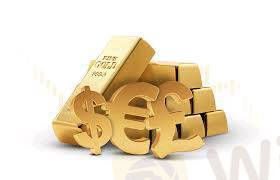
2025-02-05 06:54
業界Post-COVID Economic Environment:
#firstdealofthenewyearFateema
Post-COVID Economic Environment: Assessing the Impact on Inflation
The COVID-19 pandemic has significantly disrupted the global economy, leading to a sharp contraction in economic activity and a surge in government spending to provide relief. As economies gradually recover from the pandemic's initial shock, concerns have arisen regarding the potential inflationary implications of a post-COVID economy. Several factors could influence inflation in the aftermath of the pandemic:
Unprecedented Fiscal and Monetary Stimulus: Governments worldwide have implemented massive fiscal stimulus packages to support households and businesses during the pandemic. Additionally, central banks have adopted accommodative monetary policies, including ultra-low interest rates and quantitative easing. These measures could lead to increased money supply and inflationary pressures in the long term.
Supply Chain Disruptions and Bottlenecks: The pandemic has caused widespread disruptions to global supply chains, leading to shortages and higher production costs in various industries. These supply-side factors could contribute to cost-push inflation as businesses pass on increased costs to consumers.
Pent-up Demand and Consumer Spending: As economies reopen and consumers unleash their pent-up demand, increased spending could fuel inflation.
This phenomenon, known as "revenge spending," could be particularly pronounced in sectors that were severely impacted by the pandemic, such as tourism and hospitality.
Labor Market Dynamics: Labor shortages and wage pressures could also contribute to inflationary pressures in a post-COVID economy. Factors such as changing demographics, skill mismatches, and reduced labor force participation may exert upward pressure on wages, leading to higher production costs and consumer prices.
While these factors could lead to inflationary pressures in a post-COVID economy, it is essential to note that other forces, such as technological advancements and global competition, may counterbalance these effects. Investors should carefully monitor economic indicators and policy developments to gauge the inflation outlook and adapt their portfolio strategies accordingly, including reassessing the role of gold as an inflation hedge.
いいね 0
FX2369241724
Trader
人気の話題
業界
米国株式や日経などのクロスボーダー ETF は大量に高値で償還され
業界
包括的なリスク管理計画を策定する
業界
高度なテクノロジーとテクニカル分析を活用する
業界
📢2025年1月9日11:00の通貨ペア
業界
危険】:米国でVarna Tradeを訪問しましたが、オフィスは見つかりませんでした‼ 詳細は下の画
業界
👀#WikiFX 「先週、日本人ユーザーが最も検索されたFX会社が発表されました!」
市場分類

会社ナビ

エキスポ

IB

募集

EA

業界

相場

指標
Post-COVID Economic Environment:
 パキスタン | 2025-02-05 06:54
パキスタン | 2025-02-05 06:54#firstdealofthenewyearFateema
Post-COVID Economic Environment: Assessing the Impact on Inflation
The COVID-19 pandemic has significantly disrupted the global economy, leading to a sharp contraction in economic activity and a surge in government spending to provide relief. As economies gradually recover from the pandemic's initial shock, concerns have arisen regarding the potential inflationary implications of a post-COVID economy. Several factors could influence inflation in the aftermath of the pandemic:
Unprecedented Fiscal and Monetary Stimulus: Governments worldwide have implemented massive fiscal stimulus packages to support households and businesses during the pandemic. Additionally, central banks have adopted accommodative monetary policies, including ultra-low interest rates and quantitative easing. These measures could lead to increased money supply and inflationary pressures in the long term.
Supply Chain Disruptions and Bottlenecks: The pandemic has caused widespread disruptions to global supply chains, leading to shortages and higher production costs in various industries. These supply-side factors could contribute to cost-push inflation as businesses pass on increased costs to consumers.
Pent-up Demand and Consumer Spending: As economies reopen and consumers unleash their pent-up demand, increased spending could fuel inflation.
This phenomenon, known as "revenge spending," could be particularly pronounced in sectors that were severely impacted by the pandemic, such as tourism and hospitality.
Labor Market Dynamics: Labor shortages and wage pressures could also contribute to inflationary pressures in a post-COVID economy. Factors such as changing demographics, skill mismatches, and reduced labor force participation may exert upward pressure on wages, leading to higher production costs and consumer prices.
While these factors could lead to inflationary pressures in a post-COVID economy, it is essential to note that other forces, such as technological advancements and global competition, may counterbalance these effects. Investors should carefully monitor economic indicators and policy developments to gauge the inflation outlook and adapt their portfolio strategies accordingly, including reassessing the role of gold as an inflation hedge.
いいね 0
私もコメントします
質問します
0コメント件数

誰もまだコメントしていません、すぐにコメントします

質問します
誰もまだコメントしていません、すぐにコメントします